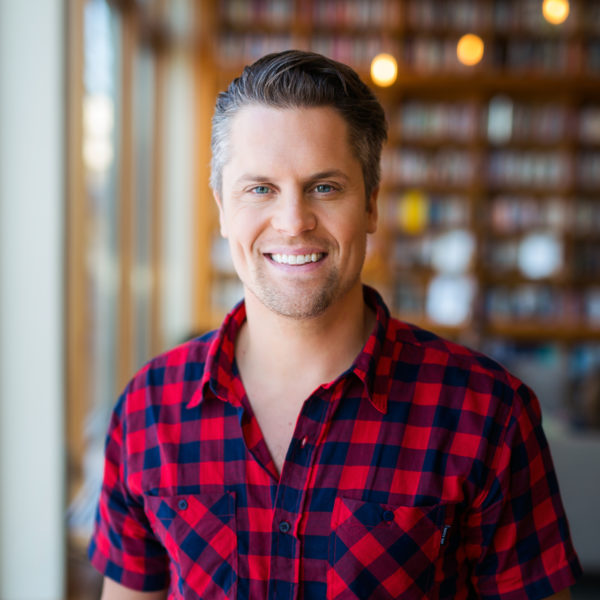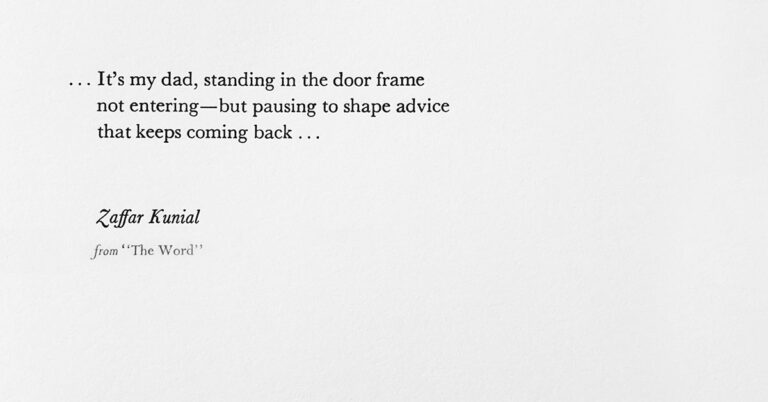The Art of Being Inefficient
On an ordinary day I would have quickly turned the corner and run the last ten blocks to my house. But on that soggy fall morning, my legs burning and my heart racing from sprinting up the steep hill, I stopped abruptly as a string of words welled up inside me:
“If you don’t have your heart, you have nothing.”
Breathing deeply, I pulled out my blaring earbuds and placed my hands at my sides. The words hovered in my head. And I knew exactly what they were telling me. “If you don’t have your heart, you have nothing,” was not a caution about my heart rate; it was a warning about the fallout from how I had been approaching life and work for the past year, the past decade and perhaps my entire adult life. The previous five years had been a mad dash of starting and pastoring a faith community, co-founding a neighborhood nonprofit and a network for spiritual and social change, and parenting three young children with my wife while she earned her graduate degree. It was all good and meaningful, but at the end of that rainy morning run, something deep within me had risen up to declare that my pace was not sustainable.
Somewhere along the way, my obsession with productivity had eclipsed my passion and sense of purpose. I was obeying the greatest commandment of current startup culture — I was hustling — but I was losing my heart, becoming an emotionally distant dad, husband, and friend, and extinguishing my inner fire for my work. To get my heart back, I would have to turn away from efficiency and embrace another way of being and doing. I would have to explore the art of inefficiency.
Author and psychotherapist Thomas Moore in The Re-Enchantment of Everyday Life, writes:
“It’s important to be heroic, ambitious, productive, efficient, creative and progressive, but these qualities don’t necessarily nurture the soul.”
Yes, solid work ethic and insights on how we do what we do are beneficial. But there is a dark side to this emphasis on efficiency, and it doesn’t discriminate between business or academic, creative or nonprofit, or any type of work. When our sights are set on efficiency and we’re consumed with hustling around our homes, neighborhoods, and workplaces, our souls often sneak out the back door, and we don’t even notice. That’s exactly what happened to me.
It happens to many of us, which is why Moore says we need “inefficiency experts.” There are enough professionals who pressure us to do more, and do it faster. Instead we need to pay attention to the people and practices that teach us a deeper wisdom. These guides nurture our souls by teaching us how to be present. They help us expand our perspective, keep our creative edge and assist us to do our best, most satisfied living and working, fueled by joy and gratitude.
On sunny Seattle days, my neighborhood park is often teeming with such guides in the hour after the kids get out of school and before dinner. But when my gaze is set on my screen so I can squeeze in just one more email, I miss the wisdom on display. My children beckon me into the world of presence as they huddle around the banana slug. My neighbor schools me in soulfulness while he strolls down the path with his Beagle, stopping to watch at the robin nestled in the tree branches. Meanwhile, the stranger on the lawn in the distance, leisurely reading a novel, invites me into the inefficient realm of the imagination.
Inefficiency experts are actually all around us. But to see them, we need to tune out the noise of the efficiency gurus pushing productivity as the key to success through conferences, online courses, and apps. To see them, we need to slow down.
The morning of my interrupted run, I crawled right back into bed when I got home. I intended to stay there, as if the opposite of doing too much was to do nothing at all. But what I really needed was to actively cultivate my own healthy habits of inefficiency. Fortunately, a scheduled lunch with a mentor friend was just enough to spur me out of bed and initiate the process of getting my heart back. As an international organizational consultant, he is well-versed in the ways of productivity, but he is also a practitioner of the art of inefficiency. He listened deeply. He invited me to remember the contours my story. He named the buoyancy of my heart that I was not yet aware of. And then we walked next door and he bought me a journal where I would spend countless inefficient hours reflecting on losing my heart and finding it again.
It was all just what my weary soul needed, and it initiated a new season in my life of actively practicing the art of inefficiency.
I replaced running with the more unhurried and less outcome-focused practice of yoga. I deliberately practiced yoga over my lunch hour. It was the least efficient thing I could have done — to move slowly and then be still on a mat for an hour in the middle of the day when I could have scheduled a lunch meeting or caught up on a project. Since then, habits like reflective writing, meditation, and seeing a spiritual director have been powerful inefficiency experts, nourishing and protecting my soul from the incessant demands of efficiency.
My children have also been my guides on this journey. In my worst moments under the spell of efficiency, I’ve viewed my kids as an impediment to my productivity (this still happens). I could be getting so much more done if I didn’t have to get them fed, dressed, and out the door to school in the morning. Or if I didn’t have to worry about them during those late afternoon and early evening hours that I used to have all to myself. And yet they pack each day with Lego-building, creative coloring, and living room dance parties — all lessons that urge me to stay awake to another world overflowing with love and curiosity and imagination.
Yoga, my children, and many others — poetry, pour over coffee, friends, and questions — schooled me in the way of inefficiency during that season. Ultimately, these inefficiency experts gave me my heart back. I transitioned out of the roles I was in and discovered new things about myself and my work.
Yet I never lost my longing to be an agent of change. In fact, in light of all the work that needs to be done in order to respond to the urgent crises plaguing the planet, I know I still have a lot to learn from the teachers of productivity and efficiency. Things like vision and strategy, focus and dedication. But I also know that when I give myself over to our accelerating cultural obsession with hustle and disregard the inefficiency experts, I will inevitably crash and burn. And if I don’t have my heart, I have nothing.
Indeed, if I desire to actively affect healing in the world, then I have no choice but to expand my inefficiency repertoire so that I can continue to contend against the burnout, stress, and depression that a zealous commitment to efficiency breeds. Because it is these diverse guides that equip me with the compassion to recognize the dignity and worth of every human being, the hopeful creativity to engage the most pressing issues of our time, and the relentless commitment to pursue equity and justice for all.
Inefficiency experts are all around us. It’s time for us to slow down and pay attention.

